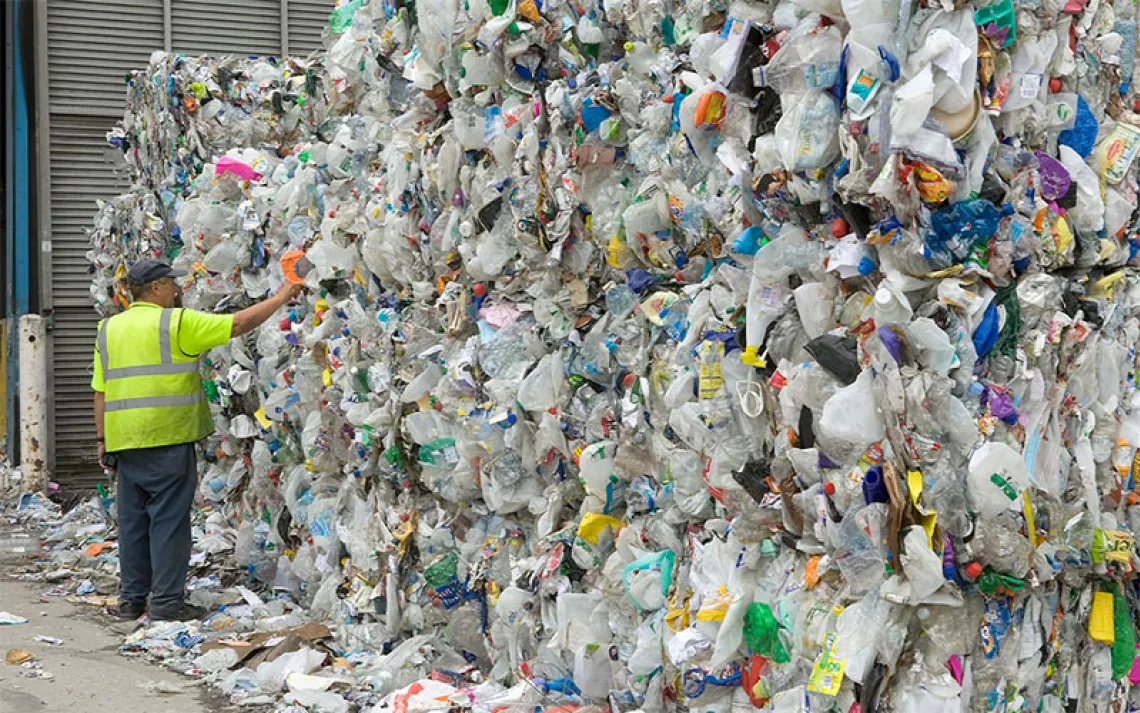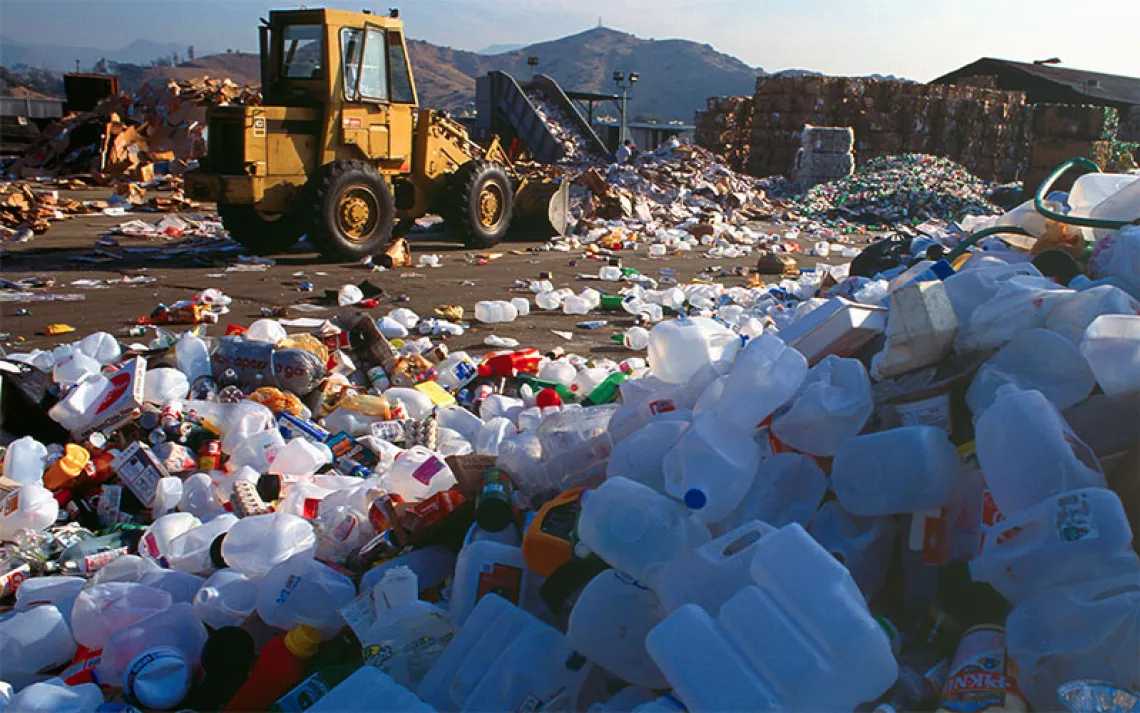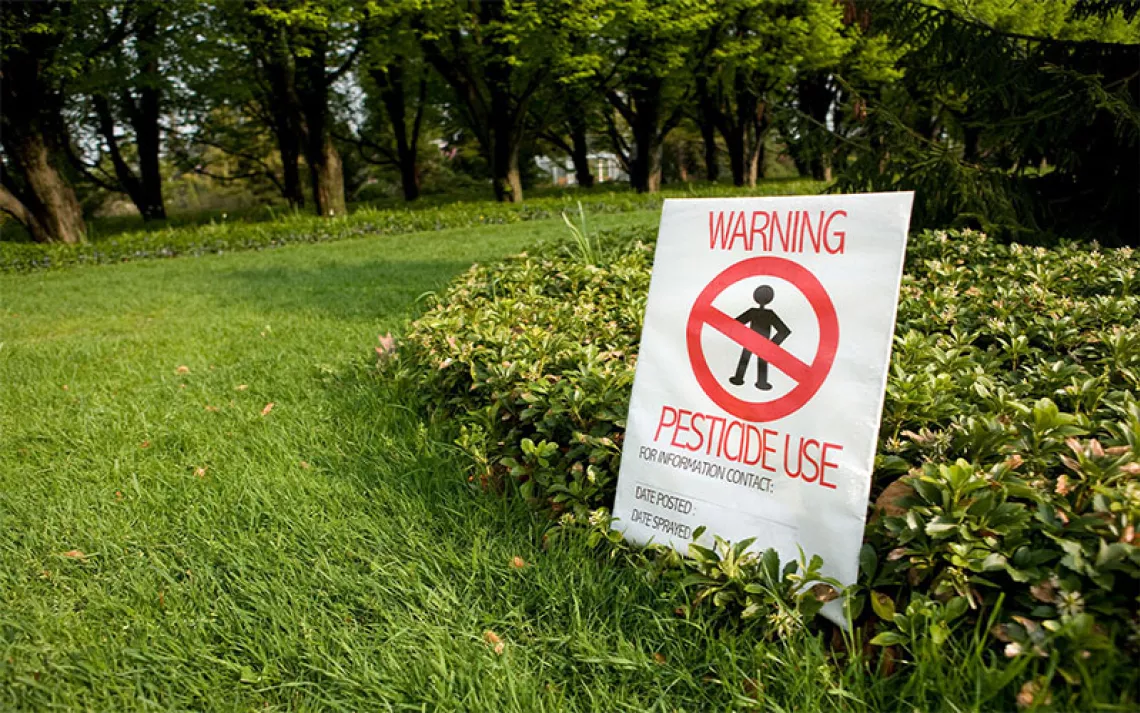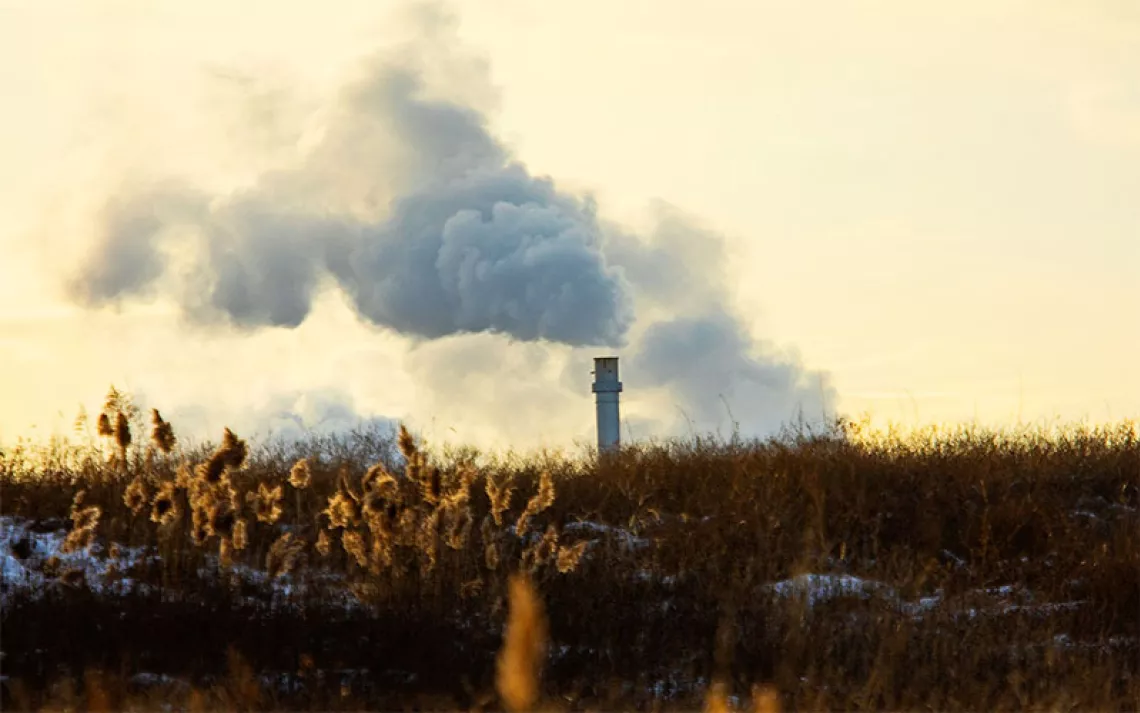“Please Pray for EP”: How East Palestine Village Is Coping Three Weeks After a Toxic Train Derailment
The Norfolk Southern train disaster is the latest example of a petrochemical boom threatening the safety of communities

East Palestine, Ohio, on February 19, 2023, more than two weeks after the derailment of a train containing toxic chemicals, which were released into the air, soil, and surface water. | Photo by mpi34/MediaPunch /IPX
On February 18, two weeks after the East Palestine, Ohio, train derailment, Cory White drove to Abundant Life Fellowship Church in neighboring New Waterford with his wife, Dawn, and their son, Trent. He arrived two hours before representatives from Norfolk Southern, the company in charge of the derailed train that has upended their lives, arrived to address the community.
“They have limited funds every day,” White wrote in a Facebook message the night before. “People start lining up hours before they really open.”
By 9 a.m., hundreds of residents stood in a line that circled back on itself through church hallways like a snake. Shuffling in under a bright-blue sky, they wore hats and coats guarding against below-freezing temperatures and clutched wrinkled envelopes with bill statements affirming their home address, along with receipts for water filters and hotel stays.
White, a chemical engineer, lives in a blue two-story house that backs up to the rail line. When the derailment happened, he was upstairs in bed with Dawn watching television. Around 9:30 p.m., Trent called his parents after hearing a rumor that East Palestine was on fire. White walked to a bathroom window overlooking town and saw a massive orange orb, but he didn’t see any concerning reports, so he went back to bed. A few days later, both he and Dawn woke up with headaches and a metallic taste in their mouths. They evacuated to his mother’s house in Darlington, about 10 miles away.
It was soon after the Whites left their home that Ohio governor Mike DeWine approved a controlled release of vinyl chloride, a carcinogenic chemical used to make PVC pipes and wire coatings, from five of the 50 derailed or damaged cars. The alternative could have been an uncontrolled explosion “causing deadly disbursement of shrapnel and toxic fumes.” A large black smoke plume was photographed by commercial airline passengers flying overhead. DeWine told the public that inhaling the chemical could be deadly and could cause skin burns or lung damage. Pennsylvania’s Emergency Management Agency reported neither the Pennsylvania Department of Environmental Protection nor the EPA had detected anything alarming while monitoring air and water quality, but “out of an abundance of caution” urged everyone within two miles of the evacuation zone to shelter in place. Those within a mile radius of the derailment site had been evacuated by law enforcement the night before.
The Norfolk Southern train disaster is the latest example of a petrochemical boom sweeping across the United States and threatening the safety of communities that find themselves in its crosshairs. Families such as the Whites, who live along pipeline and railroad routes that transfer chemicals to these new facilities, are increasingly vulnerable, and few protections are in place to make sure accidents like the one caused by Norfolk Southern will be avoided.
White didn’t return to his house just outside the evacuation zone until Governor DeWine announced it was safe two days later. He said he doesn’t smell any lingering aromas, but sometimes he still has the metallic taste in his mouth. Meanwhile, his small town of less than 5,000 people is trying to understand what comes next now that the emergency response is over and a long-term cleanup has begun.
Along Main Street, an ice cream shop, the Dairy Mill, posted on its letter board “Please Pray for EP.” Volunteers handed out pallets of bottled water at Lourdes Hall, the town’s Catholic Church. In the Family Dollar parking lot, a woman wearing white gloves held out a poster board advertising free water. In a small park, a man spray-painted a sign reading “FEMA Denied.” (While the federal agency had denied assistance for two weeks because the derailment was a human-made disaster, on February 17 FEMA announced that it would send a team to East Palestine.)
Donna Hummel hadn’t been downtown since the derailment because she has asthma. But she arrived with her husband, Frank, at the church around 9:30 a.m. last Saturday. “We’re not happy with this, but what are you going to do?” said Frank, who is in his mid-eighties and leaned every so often into the wall. The day before, they had arrived before noon but were turned away because of the long line. The Hummels live in a condo on a hill outside the evacuation zone. They left before the controlled burn, staying overnight with friends, and then returned home.
But their daughter and a granddaughter, who live a few blocks from the derailment, were evacuated. Hummel said her family hasn’t had any health problems or noticed any lingering smells in the weeks since, but she was worried that the fish were sick and dying and that other predators, like the raccoons that eat the fish, would sicken too. She knew a friend with a sick horse. She and Frank, who are on municipal water, have decided to drink bottled water, even making their coffee with it.
White, too, plans to drink bottled water indefinitely. East Palestine relies on an aquifer, and White said that while the water might be fine right now, over time contaminated surface water could drain through the soil and infiltrate into their clean drinking water source 30 to 62 feet below, according to a 2019 East Palestine Village water source assessment by the Ohio EPA. Officials have repeatedly stated that East Palestine’s municipal water is safe to drink, but residents with private wells have been advised to drink bottled water until their well is tested.
“The community is tired of the runaround,” said White. Earlier that week, he had attended a raucous town hall meeting for concerned residents that he felt unified the community. He felt “insulted” that former president Trump would arrive a few days prior to President Biden or Transportation Secretary Pete Buttigieg. White did not vote for Biden, but he says he’ll support any politician who supports East Palestine.
Politicians on both sides of the aisle have used the train derailment to further their messaging, especially right-wing conspiracy theorists and media outlets spreading misinformation, so much so that National Transportation Safety Board Chair Jennifer Homendy said in a Thursday investigation update, “Enough with the politics on this.”
In a newsletter last week, Lyndsey Gilpin, editor and founder of Southerly, a media outlet covering environmental justice in the South, wrote that it will take time to acquire information and investigations from government agencies like the EPA and corporations like Norfolk Southern, along with understanding the pollution and resulting ecological and human health effects in the weeks and months to come.
“Our emergency management and disaster response process is a slow bureaucracy, and it has many design flaws,” Gilpin wrote. “Unfortunately, years from now, we may see health issues arise, just as we have when disasters like this have happened in other places.”
Since Saturday, the EPA has announced Norfolk Southern would be placed in charge of all cleanup operations, including contaminated soil and water, under an EPA-approved work plan. Should the company fail to complete any EPA-ordered actions, the EPA would step in, do the work, and compel the rail company to pay triple the cost.
“Norfolk Southern will pay for cleaning up the mess that they created and the trauma that they inflicted,” said EPA administrator Michael Regan in a statement. Governor DeWine plans to set up a long-term fund for residents alongside a $1 million fund Norfolk Southern is creating for East Palestine. A health clinic has opened for residents who have had nascent health issues since the derailment.
On February 18, three and a half hours after the White family arrived at the Abundant Life Fellowship Church, they left with a total of $3,300. The payment included $1,000 for the inconvenience to each member of their family and $300 for a new five-gallon water dispenser and an ice machine. White reported that Norfolk Southern stopped giving out call numbers to new arrivals by 11 a.m. By that time, he estimated, 300 people had crowded into the church.
 The Magazine of The Sierra Club
The Magazine of The Sierra Club



